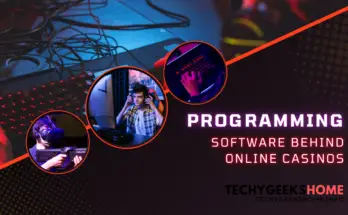Estimated reading time: 5 minutes
Starting a career at 30 might sound like a challenge. Most companies hire young professionals with relevant background to teach them how to work in a certain way. Doing so, they reassure that an employee will be geared towards a particular niche. This is especially true for tech careers. Young professionals are easy to train, but mature ones have more experience. Can the latter count on getting a job in such a situation?
Yes, they can. Still, there are some things to consider. Whether you have been working in another sphere before and want to do a career switch or this is your first step in the technical world, you should keep some things in mind. Here you will find tips for 30+ experts (or beginners) who want to start a tech career.
Knowledge is your main weapon
When applying for a technical position, you need to know the materials perfectly. As a rule, employers hold interviews and send trial assignments to make sure that you are skilled enough. Not only you need to know a specific programming language, but also the frameworks connected with it. A particular skill set is necessary, but you must be aware of the rest of the stuff that supports and correlate with it.
For example, you work with websites for video streaming. You may know the language and approaches perfectly, but there is another thing to consider. Such sites are widely used on mobile devices, which means that you need to know all ins and outs of Android and iOS development. Try not to miss something as important as that when preparing for your tech career.
Digital networking
In most cases, any job-related networking is extremely boring. However, this is something you cannot ignore. Digital networking is the right choice here – personal communication will be limited or even absent, but you will have a chance to keep an eye on people from the niche. Follow both experienced developers and beginners like you. Track their pages on Facebook and Twitter to get useful information they share with subscribers. Don’t be shy to write messages to them directly and ask area-related questions, advice, or even links for useful lectures/books.

Open accounts on different platforms
You need to be visible online to let people find you easily. Having a LinkedIn account is a must if you want potential employers to know about you. Post your resume and make sure that it is up-to-date and accurate. Include job-related experience only and make sure to focus on the niche you want to work with.
If your previous career is not a subject of your interest anymore, avoid including information about it. People may change careers radically, so you shouldn’t mention that: “I write my essays in Australia and sell them to aspiring students,” if you are not going to write them anymore. You may mention your previous irrelevant positions slightly. If your potential employers need details, they will ask you about that.
The other resource you are recommended to use is GitHub. If you don’t have any large projects at the moment, you can showcase some small pieces of code and snippets that work and are ready to use.
Also, having a tech-related blog where you share your experience, describe frameworks, and instruments might be a great idea. This is one of the best ways to demonstrate your knowledge and let the employers reassure that you are a pro.
Freelancing
When starting a career at 30, you should demonstrate that you have practical experience. The best way to do that is to complete some freelance projects and add them to your portfolio. There are numerous platforms for freelance-developers, so you can easily find a part-time job there. Completed projects and an ability to talk about them is a great sign for the employers. They will have a better understanding of your current skill set. Of course, you will have to work in a team when employed, but a bunch of working projects will add more ammunition to your portfolio.
What is more, learning in practice is extremely beneficial for beginners. Freelance projects will let you “palpate” the work process and see how everything looks from within.
Stop thinking about your age
While ageism on the market is a real problem, you shouldn’t feel too much concerned about the numbers. Maybe, you won’t be the youngest person in a team, but this is not a problem. What really matters is your skillset. If you fit the organization, then there are no reasons to worry about a thing. If you don’t really make a big deal out of your age, then other people won’t do that as well. If they do, then you shouldn’t pay attention or simply choose another job.
Conclusion
We are not trying to say that your age won’t be an obstacle if you want to start a tech career at 30. Yes, this won’t be a walk in a park, but getting a job in such a competitive sphere is never a fairy-tale, whether you are a college graduate or an adult person. Follow the tips listed above and remember that your skillset is a key element. In fact, this is what interests the employers more than anything else. You need to show that you know the stuff and can do the job. If you are a suitable candidate with a relevant background, your age won’t be a big issue.
Get some side-projects, create a good-looking portfolio, post some GitHub projects, write blog posts, and learn new skills. Good luck with your new job position!
Share this content:



